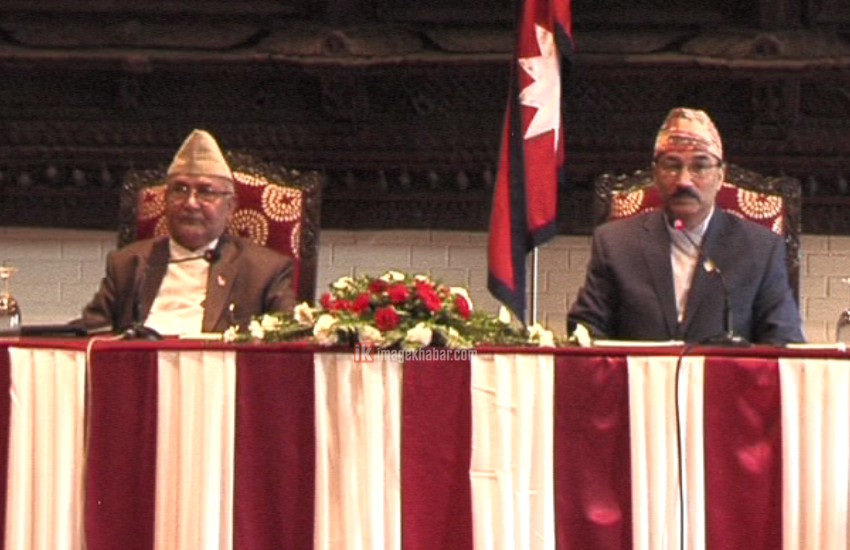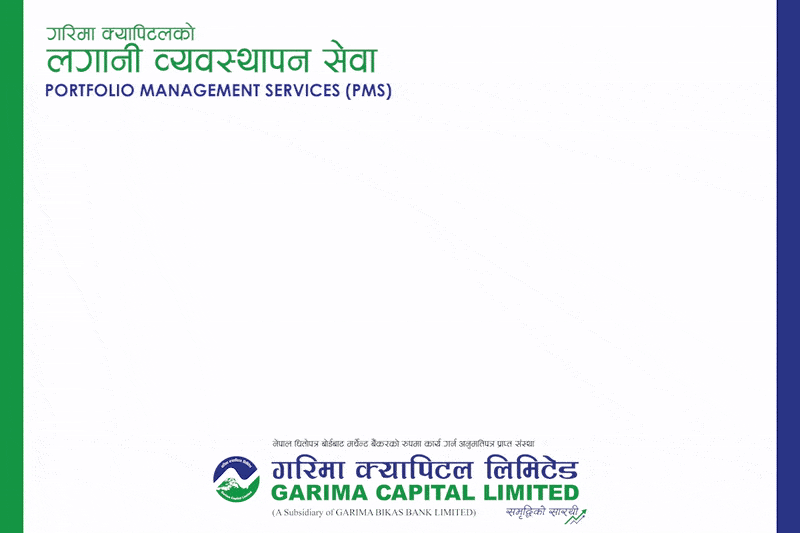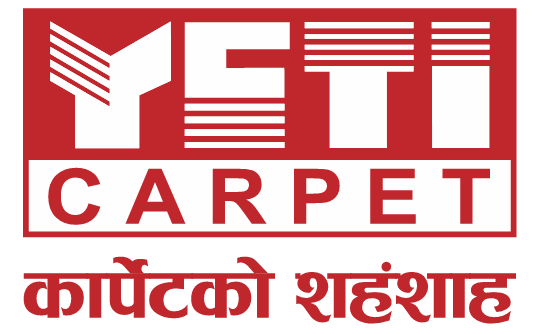
Kathmandu, May 11: Prime Minister KP Sharma Oli has urged the representatives of various diplomatic missions based in Nepal to take stock of post-quake state of Nepal without any doubt.
In a programme organized here Wednesday to brief the diplomatic community about the contemporary issues of the country, PM Oli also clarified them that the government was committed to addressing the genuine demands of the disgruntled political parties.
PM Oli reiterated, “The government has appealed to those political parties which are unhappy with the some provisions in the new constitution for talks.”
He was quick to reaffirm the government’s commitment towards safeguarding democracy and human rights. He urged the representatives of diplomatic corps to duly acknowledge the government’s efforts towards this end.
Stating that the development works were lagging behind in absence of people’s elected representatives in the local bodies, PM Oli shared that that an interim election of the local bodies will be held by mid-December until the restructuring of the local bodies is carried out as per the federal set up.
Oli also took the opportunity to brief the international community about the damages incurred by the Gorkha Earthquake. Stating that it was inevitable to provide safe shelters to the quake suffered people before monsoon, he shared that the high-powered National Reconstruction Authority has already sprung into action towards this end.
The PM called for cooperation from one and all, including the international community, for post-quake rebuilding and reconstruction works.
He confided that the country was going through hard times wherein the government was facing challenges in connection to the implementation of the newly promulgated constitution and post-quake reconstruction efforts.
Similarly, Deputy Prime Minister and Minister for Foreign Affairs, Kamal Thapa, said Nepal has witnessed many new developments on political, social and economic fronts.
“A little late though, now we have intensified reconstruction works with sincere commitment and determination. You may recall that President and the Prime Minister had begun the mega reconstruction initiative a few months back, coinciding the date of the biggest ever earthquake in Nepal’s history in 1834. Now, I am happy to share that all necessary legal and institutional frameworks for the reconstruction have been established. Priorities have been determined; action-plan has been finalized; and, implementation has been already initiated,” said the DPM.
He further said Nepal has already concluded framework agreements with most of our partners specifying the modality of utilization and allocation of the fund. Specific list of projects have been communicated to them.
DPM Thapa reminded that National Reconstruction Authority has made a positive decision on and approved guidelines for the involvement of non-government organizations in reconstruction campaign. NGOs can undertake reconstruction projects after signing tripartite agreement with NRA and local stakeholders.
“While visiting different countries, I have felt that there is still misperception and misunderstanding about our constitution. There is a perception that the constitution is not complete, inclusive and broad-based.The fact of the matter is that critics have either not studied the constitution fully or they do not want to assess its content fairly and objectively,” DPM Thapa said, stressing that Nepal’s constitution was not hundred percent perfect. Nowhere in the world such perfection was possible.
The diplomatic community was made aware again that Nepal’s constitution encompasses the main features of a democratic and inclusive polity.
It guarantees human rights and fundamental freedoms to all citizens without any discrimination. State policies are aimed at uplifting the overall status of all section of society. Concrete measures have been devised to promote inclusive representation in all levels of governance.
He further elaborated that in terms of process, it was broad-based, consultative and participative. In terms of content, it was comprehensive, inclusive and substantive. And, in terms of orientation, it is forward-looking, progressive and dynamic.
Moreover, he said the fact that Nepal made the first amendment of the constitution within four months of its promulgation reflects how flexible and accommodative document it is. The Government is ready to resolve all issues through dialogue, he stressed.
The diplomatic community was informed that the government has constituted a high level political committee, and earlier this week, the government officially communicated to the agitating parties inviting them for talk.
According to him, the government’s focus is now on implementation of the constitution. In this process, Nepal has already amended 193 laws incompatible with the constitution. Additional 138 laws would be enacted within a year and this would provide legal foundation for the full implementation of the constitution.
Other efforts of the government as the implementation of federalism and administrative restructuring, formation of a High Level Steering Committee at political level and of Coordination Committee at administrative level, decision to hold election at local level within November/December, announcement of the annual policy and programmes, commitment to promotion and protection of human rights, activities of the Truth and Reconciliation Commission and the Commission for Investigation of the Disappeared Persons and the issues on international front as signing of the Paris Agreement on Climate Change were also shared on the occasion.
“Transitional justice mechanism is not meant to undermine our commitment towards human rights. Nevertheless we all have to accept that transitional justice has its own complexity. We cannot completely ignore the complex character and dynamics of the whole peace process. We are mindful of the fact that rigid legality should not lead to an unravelling of the progress we have so far made in transforming society from conflict to peace and undermine our efforts to sustain peace. Our policy is clear on this,” stressed DPM Thapa.
Moreover, the foreign diplomats were told that Nepal pursues the policy of friendship with all. In neighbourhood, Nepal’s consistent effort is to maintain cooperative and friendly relations with the two friendly neighbours – India and the People’s Republic of China, according to the DPM.
Assuring the international community that Nepal’s political issues are now resolved, DPM Thapa sought the concrete support not only in the form of development cooperation but also in encouraging their private sectors to invest in productive areas in Nepal. RSS








प्रतिक्रिया दिनुहोस्